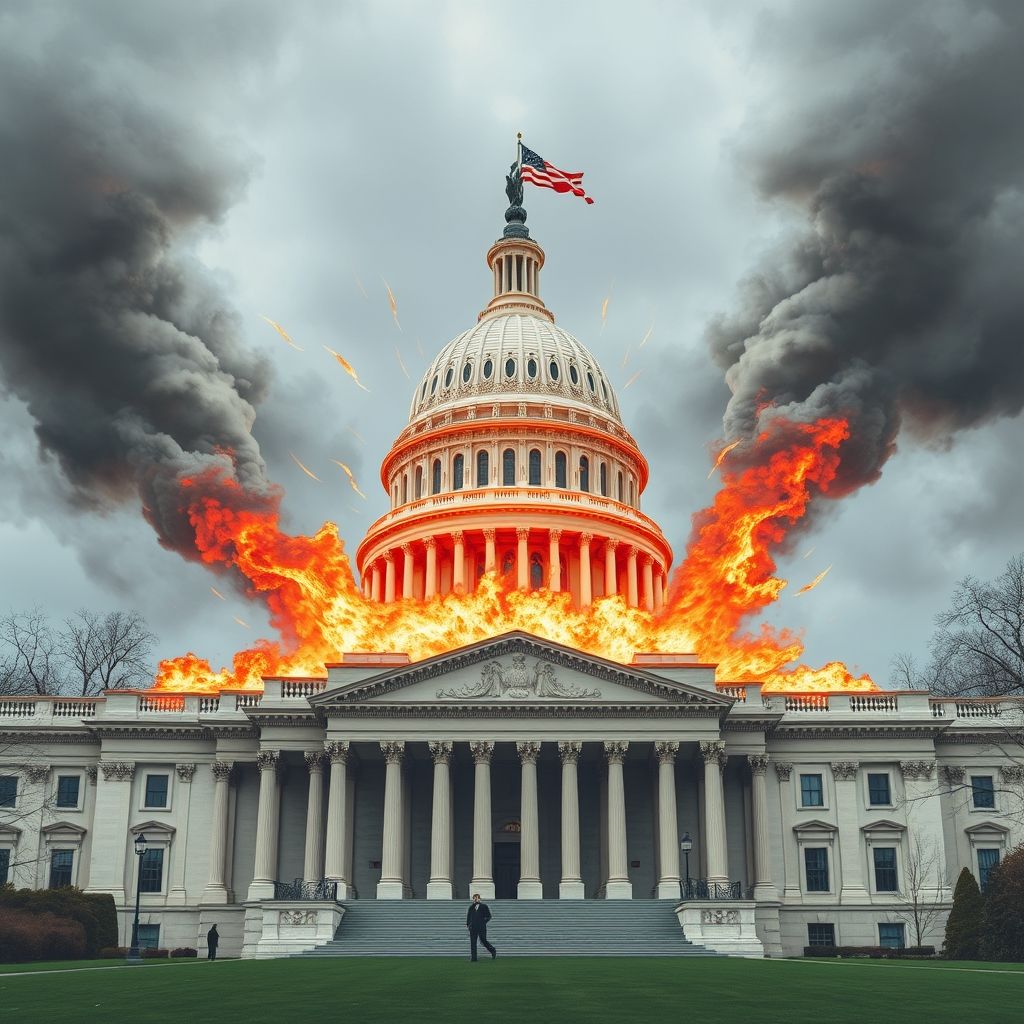Washington, D.C. – A sweeping Republican-backed tax and spending bill, now advancing through the House, is igniting fierce debate across financial markets and political aisles as new analyses warn it could balloon the U.S. deficit by trillions over the next decade.
While GOP leaders tout the bill as a path to prosperity and fiscal renewal centered around renewing former President Trump’s 2017 Tax Cuts and Jobs Act (TCJA) economists and credit agencies are sounding the alarm. The bill’s proposed tax breaks far outweigh its spending cuts, with a projected net cost of $3.8 trillion over the next decade, according to the nonpartisan Joint Committee on Taxation.
Moody’s Ratings, one of the three major credit rating agencies, recently downgraded the U.S. debt outlook, citing the bill’s potential to add $4 trillion to the primary deficit, which excludes interest payments. “Persistent, large fiscal deficits will drive the government’s debt and interest burden higher,” the agency warned, making the U.S. less fiscally resilient compared to other advanced economies.
The Math Behind the Mayhem
At the heart of the legislation is the GOP’s effort to make the TCJA’s tax cuts permanent before they expire in 2025, a move supporters argue will stave off a massive tax hike. But renewing those cuts alone carries a price tag of $2.2 trillion. New provisions like eliminating taxes on tips and overtime, expanding deductions for seniors, and increasing the standard deduction bring the total cost of tax breaks to $7.7 trillion, according to the Bipartisan Policy Center.
In contrast, the proposed spending cuts only offset $3.9 trillion, leaving a gaping fiscal shortfall.
“This bill doesn’t bring us closer to a balanced budget, it moves us further away,” said Maya MacGuineas, president of the Committee for a Responsible Federal Budget. “Our interest payments are already outpacing what we spend on Medicare or defense.”
Political Crossfire
The bill has sparked divisions not just between parties, but within the Republican ranks. The House Freedom Caucus criticized the legislation for failing to deliver on promises of fiscal discipline. On the other side, Democrats argue the bill prioritizes tax relief for the wealthy at the expense of vulnerable Americans.
“This bill is about giving tax cuts to the wealthy and paying for it with cuts to food, healthcare, and housing for the poor,” said Rep. Jim Clyburn (D-SC). “That’s not fiscal responsibility, it’s economic cruelty.”
Indeed, the Penn Wharton Budget Model found that the bottom 20% of earners making under $17,000 annually would suffer a net loss of $1,035 in 2026, after accounting for cuts to programs like Medicaid and food assistance. Over a lifetime, the poorest working-age Americans would lose $28,000 in value, while top earners would gain $30,000.
Wall Street’s Growing Concern
Wall Street is paying close attention. The U.S. has already faced multiple credit downgrades in recent years, largely over fiscal gridlock and ballooning deficits. Moody’s decision to downgrade U.S. debt to Aa1 reflects a growing lack of confidence in policymakers’ ability to rein in spending and boost revenues in a meaningful way.
“Investors are looking for signs of long-term fiscal stability and right now, they’re not seeing them,” said Danielle Hale, chief economist at Moody’s. “Large, unpaid-for tax cuts with insufficient offsets are simply not viewed as sustainable.”
What’s Next?
As the bill moves to the Senate, it is likely to undergo revisions. Key sticking points include controversial proposals like work requirements for Medicaid recipients and rolling back green energy tax incentives, both of which are hot-button issues in a divided Congress.
The White House, for its part, disputes the gloomy outlook. Spokeswoman Karoline Leavitt defended the plan, claiming it offers $1.6 trillion in savings and is “the largest saving for any legislation that has ever passed Capitol Hill.” But those savings are in dispute, with analysts noting they rely on optimistic assumptions about economic growth and future legislative actions.
The Bigger Picture
As baby boomers retire and entitlement costs swell, America’s fiscal foundation is under increasing stress. Experts argue that while tax relief may be politically popular, especially in an election cycle, the broader consequences could undermine critical programs like Social Security, infrastructure, and healthcare.
“It’s time for Congress to pause, reassess, and design a bill that actually puts us on a sustainable path,” said MacGuineas. “Otherwise, we’re trading short-term gains for long-term instability.”
The GOP bill may still morph in the weeks ahead but one thing is clear: the battle over taxes, spending, and debt is far from over, and the stakes for America’s fiscal future have never been higher.




